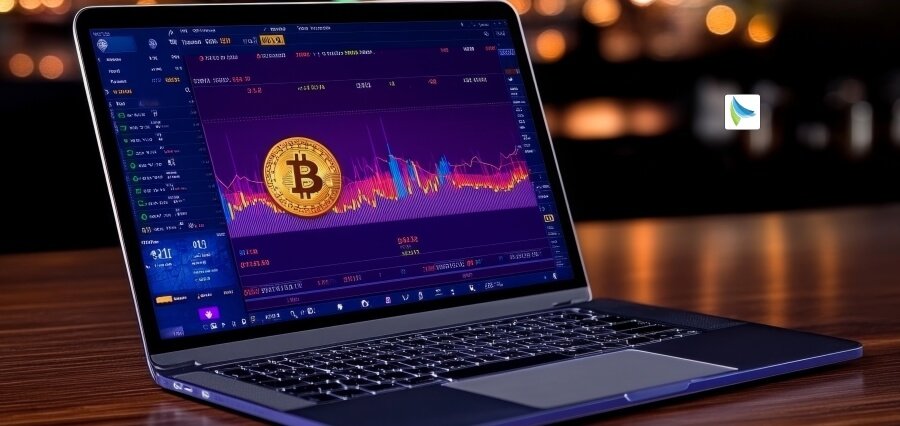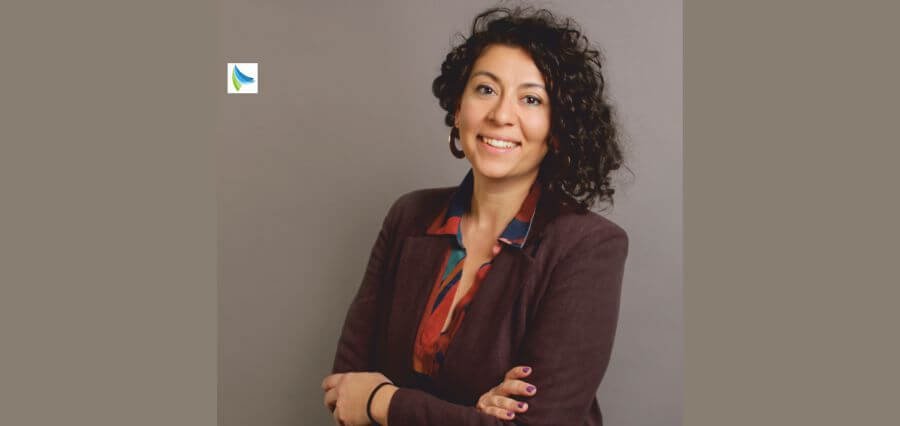Empowering Cities, Elevating Lives, and Fostering Sustainable Mobility Solutions!
The rapid evolution of our urban landscapes has given rise to a crucial challenge: How can we ensure that our cities remain vibrant, accessible, and sustainable for generations to come? The answer lies in pioneering mobility solutions that not only address our immediate transportation needs but also pave the way for a brighter and more interconnected urban future.
At the forefront of this is Rui Silva, an Operations and Maintenance General Manager at RATP Dev Saudi Arabia; he’s not only at the helm of a complex operation but also a driving force behind shaping the future of urban transportation.
With 23 years devoted to the mobility sector, Rui’s enthusiasm for his field is contagious. He understands that mobility isn’t just about moving people from one place to another; it’s about nurturing the growth of cities, boosting local economies, and enhancing the overall quality of life for all residents.
One of Rui’s exceptional traits is his dedication to customer experience. In his role, real-time feedback serves as a compass, guiding the enhancement of services. He fosters a close relationship with customers, delving into their current and future mobility needs to craft seamless solutions that incorporate a mix of transportation modes for various requirements.
But Rui’s impact transcends customer interactions. He’s actively contributing to the development and planning of cities, embedding himself within the frameworks of smart cities and championing eco-friendly transportation choices to combat climate change.
His journey has been marked by remarkable milestones. From being part of the monumental Metro do Porto project in Portugal, which kickstarted his career, to leading multicultural teams and establishing centers of expertise, Rui has always embraced challenges as opportunities. His expertise has not only fostered efficient operations but also sowed the seeds of sustainable urban mobility.
Below are the highlights of the interview:
Transforming Transportation and Mobility
Rui embarked on his journey as Operations Director, first acquiring a tramway driving license in Strasbourg. He then assumed the crucial role of training a group of drivers in the installation, operation, and maintenance of the public transport system. This pivotal training laid the foundation for establishing the O&M company from scratch. During the project launch, Rui actively engaged with residents, commercial shops, and neighboring companies, explaining the intricacies of the new transport system and fostering cooperation for mutual success. His emphasis was on promoting accessibility through public transport, envisioning a comprehensive intermodal solution that shifted the focus from private cars to diverse mobility options tailored to specific needs.
Later, Rui transitioned to the role of Maintenance Director, eventually rising to become the General Manager of the O&M company. He continued this trajectory in the bus sector, accumulating valuable experiences along the way.
These diverse experiences provided Rui with a robust foundation, enabling him to tackle a wide range of projects. He honed the essential skill of effective communication, seamlessly interacting with drivers, operation controllers, technicians, customers, and public authorities. Rui emerged as a proficient developer of viable mobility solutions and an adept collaborator in fostering partnerships to cater to diverse mobility needs, all while prioritizing customer satisfaction.
Beyond his accomplishments in the transport sector, Rui also achieved a significant milestone by launching Portugal’s first car-sharing operator. This innovative concept revolutionized mobility, offering companies the opportunity to embrace mobility as a service without the burden of investing in a fixed fleet of cars. The pay-as-you-use system effectively eliminated the need for fixed costs and immobilized capital, redefining the traditional concept of individual private cars and ushering in a fresh perspective on mobility.
Journey of RATP Dev
RATP Dev, setting its foot in the Middle East back in 2012, has carved a remarkable path of growth and excellence. The initial contact with the region for business development led to a significant collaboration with SATPCO, the prestigious bus company in Saudi Arabia, on the Future King Abdulaziz Public Transportation Project in Riyadh. This milestone, executed through the Public Transportation Company (PTC) consortium, marked the inception of RATP Dev’s impactful presence in the Middle East.
In 2013, the company’s pursuit of excellence led to the submission of a proposal, culminating in the successful securing of a significant contract in November 2014. This 12-year agreement for operations and maintenance was a testament to RATP Dev’s dedication and expertise. Building on the success of this pivotal project, RATP Dev expanded its reach across the region with notable achievements, including the Operations and Maintenance for Metro Lines 1&2 in Riyadh, overseeing metro/tram operations in Doha and Lusail, Qatar, and the commendable management of the Operations and Maintenance for Metro Line 3 in Cairo, commencing in 2021.
With its headquarters based in Dubai, UAE, RATP Dev Middle East has firmly established a strong presence in Qatar, Saudi Arabia, and Egypt. A workforce exceeding 5,000 employees across its subsidiaries, combined with over a decade of valuable experience, has propelled RATP Dev Middle East into a pivotal role in the region’s public transportation sector.
Cornerstone of Leadership Approach
At the heart of Rui’s leadership philosophy lies a commitment to innovation and disruptive approaches. From the ground up, be it redefining targets, reshaping strategies, optimizing organizations, or elevating performance standards, these principles form the bedrock of Rui’s leadership journey. The recognition of a cohesive and capable team with the essential blend of soft and hard skills is paramount. Bolstering the team’s motivation to advance both personal and collective goals stands as a key priority. He maintains an ever-watchful eye on the team’s needs, aligning them meticulously with the core values and strategic vision of the organization.
This dynamic approach begins with solid foundations – best practices that serve as a launching pad for a more audacious endeavor. Rui takes the bold step of challenging the team to redesign processes from scratch, unencumbered by conventional constraints. This visionary approach allows for the formulation of audacious targets, progressively breaking free from existing limitations as they journey toward the ideal destination. In a world of rapid change, he recognizes that traditional models and paradigms no longer hold sway in this new realm.
As a staunch advocate for fostering innovation, Rui champions a culture of learning from both triumphs and setbacks. The pace of the modern business landscape demands swift adoption of innovative strategies, where effective innovation acts as a powerful differentiator, providing a distinct competitive edge.
In a past role, he introduced transformative transport digitalization solutions. These solutions not only monitored service quality but also benchmarked against rigorous international standards. Moreover, they ushered in enhanced communication, transparency with clients, and a fortified trust in supplier-client relationships. This groundbreaking innovation received resounding praise, being widely recognized for the significant value it added to the overall customer experience.
Another shining example of his innovative approach involves the creation of showrooms showcasing pioneering projects and dynamic business cases. These showrooms are living embodiments of world-class services, boasting cutting-edge technology, pilot initiatives, and comprehensive KPI systems. These real-time showcases not only exhibit potential value for customers but also invite impartial and candid feedback, paving the way for continuous optimization of the services offered.
Championing Ethics, Compliance, and Safety
In Rui’s professional philosophy, ethics, compliance, and safety stand as unwavering pillars, harmoniously resonating with the values embraced by RATP Dev. At the heart of this alignment lies integrity, a fundamental principle anchoring the Group’s business interactions. It entails steadfastly rejecting corruption and influence peddling, meticulously sidestepping conflicts of interest, and adhering rigorously to antitrust laws. This commitment extends to safeguarding their valuable assets and resources. The bedrock of trust cultivated with employees, shareholders, customers, and suppliers fuels the Group’s growth.
He bears the vital responsibility of ensuring strict adherence to legal and international regulations pertinent to the business domain. This pivotal duty is accomplished through the embrace of two essential codes: the Code of Ethics and the Code of Business Conduct and Prevention of Corruption.
These policies serve as the compass, delineating the specific rules that govern actions. They offer a pragmatic framework for translating the principles enshrined in the Group’s overarching Code of Business Conduct and Prevention of Corruption into actionable guidelines, shaping the everyday course of operations.
A culture of effective and continuous communication thrives, ensuring that every individual comprehends the non-negotiable essence of these values. The overarching goal is to cultivate an unwavering sense of trust and responsibility, permeating every level of the employee hierarchy. The Code of Ethics and the Code of Business Conduct and Prevention of Corruption are not mere documents; they are pivotal instruments that establish the benchmarks of conduct, raising awareness and ensuring steadfast adherence to the ethical principles serving as the Group’s moral compass.
The synchronization between Rui’s resolute commitment and the inherent values of RATP Dev forges a potent alliance, propelling the Group forward into a future underpinned by unyielding integrity, steadfast compliance, and indomitable dedication to the highest ethical standards.
Driving Synergy and Excellence
In his capacity as the Vice President of Eurolines, Rui embraced the pivotal role of championing the collective interests of European operators of international lines within the corridors of EU authorities. At the helm of this responsibility, his strategic purview encompassed an array of pivotal tasks that effectively propelled the organization forward.
As the steward of this multifaceted role, Rui’s primary mission involved meticulous oversight of the expansive gamut of business operations governing international lines. This task was punctuated by forging and nurturing partnerships spanning the European landscape. In this endeavor, he heartfully wove a tapestry of operational and commercial synergies among associates, engendering an ecosystem where cooperation thrived. Moreover, his tenacity was directed towards bolstering the Eurolines brand, meticulously cultivating its identity as a beacon of reliability and excellence at the pan-European level.
Rui’s trail of accomplishments is illuminated by a remarkable achievement in his advocacy endeavors. His deft orchestration of synergies and the implementation of a shared decision-making business model among partners stood out as a watershed moment. Through strategic measures such as the streamlining of sales points, the adoption of a uniform identity, joint marketing campaigns, and the exchange of market intelligence, a paradigm shift was achieved. The customer journey was notably enhanced, and a uniform, quality-driven service offering that resonated with customer expectations was cemented.
Navigating Challenges
When Rui joined the company, the revenue was around 30 million Euros, and the main focus was on establishing connections between a limited number of countries and Germany. They came up with a plan to find potential markets in different European cities, especially in northern and eastern Europe. They set up branches in these cities to reach new customers and make use of untapped regions. Under Rui’s leadership, the team looked into the possibility of introducing new services in existing markets to cater to different types of customers and expand the range of services. They created business plans to support this decision-making process.
Efforts were made to partner with local actors and create synergies. This involved improving communication with local communities, increasing commercial visibility, and setting up an efficient distribution network to make their products more accessible.
They enforced a consistent and high-quality standard among all Eurolines partners, which strengthened the brand and built customer confidence. As a result, the business saw a steady increase in volume, with annual revenue growing from 30 million Euros to 50 million Euros between 2009 and 2015. Shareholders also received higher annual dividends, rising from 0.5 million Euros to 2 million Euros.
In 2016, they conducted a review of the business model, which led to a resizing and restructuring plan for certain business units. This was a proactive step to prevent potential losses due to the entry of a new, well-funded international competitor. The competitive landscape and market conditions were significantly affected, which led the shareholders to make the tough decision to cease operations and exit the market. This experience provided valuable lessons for everyone involved in the German and International Lines Market.
Fostering a Unified and Empowered Team Culture
Rui is dedicated to cultivating a culture that places a strong emphasis on shared identity among team members. This encompassing approach is built on clear values, a precisely defined vision and mission, a strategic plan meticulously crafted by the executive team and endorsed by shareholders’ representatives, and a collective commitment to targets harmoniously aligned with the overarching organizational objectives.
Central to his leadership philosophy is the encouragement of solution-oriented thinking rather than fixating on problems. He provides his teams with unequivocal guidance and steadfast support, especially empowering middle management to tackle challenges proactively. These teams are granted autonomy in their decision-making processes, underscored by a robust sense of responsibility.
Rui actively champions a culture of transparent information sharing within the teams. This open communication ensures that team members are well-informed, fostering a strong sense of collaboration and inclusion. He prioritizes creating a positive and conducive work environment for his teams, which encompasses offering favorable working conditions and promoting a healthy work-life balance. As a motivating factor, he implements performance-based bonuses that are rooted in company results and achievements, demonstrating a keen recognition and appreciation for creativity, innovative thinking, and individuals who contribute by presenting well-argued proposals and effective action plans. Rui values constructive dissent, appreciating those who offer valuable perspectives beyond mere agreement.
Navigating the Transport Landscape
Rui has gained valuable experience in managing transportation companies in Portugal and Galicia. Through his work with Spanish partners as a Eurolines Partner and as a business partner in a joint project in Germany, he has gained insights into different cultures and the challenges of navigating a transport network as a tourist. Overcoming these challenges required a deep respect for local values and effective collaboration with local partners. In addition, he managed a partnership with a local family company in Galicia while bidding for O&M tenders and operating an O&M project. This required finding common ground between the practices of an international group and a family company. By respecting the company values of both entities and considering the historical relations between the local partner and local authorities, he ensured compatibility and achieved successful operations and sustainable results.
Furthermore, Rui managed partnerships with major competitors, both as a minority shareholder and in 50/50 shares. Building trustable relationships based on mutual respect and personal consideration, he found ways to fulfill commitments and support decisions to achieve positive results.
All of these experiences have provided valuable challenges and rewarding opportunities for Rui to learn important lessons about conducting business and managing diverse teams.
Leading Transformation and Excellence
Rui finds immense fulfillment in his professional journey, describing himself as genuinely content. He derives a strong sense of reward from his role and has garnered a plethora of testimonials and acknowledgments throughout his career, which serve as powerful motivators, particularly during challenging times. He firmly believes that recognition is the product of hard work and unwavering passion. His appointment as Operations and Maintenance General Manager for RATP Dev in Saudi Arabia stands as a testament to his unwavering dedication and resolute commitment.
Upon his arrival in Saudi Arabia, Rui encountered a team facing the ramifications of the Covid isolation period and a perceived disconnect with the parent company. His initial priorities centered on acquainting himself with the team, grasping the intricacies of the contract and ongoing work, and fostering strong relationships with the client and colleagues.
During this crucial phase, Rui seized the opportunity to revamp the organization, streamlining its structure to be more agile and horizontal. He harmonized it with essential processes and instituted a performance team aimed at supporting all departments in their pursuit of targets.
Within a mere six months of his tenure, Rui orchestrated the successful preparation for the Start of the Commercial Operation of the Riyadh Bus. They launched the first stage, boasting 360 buses and 810 bus captains, marking a substantial milestone. In a mere three months, they achieved the second Start of Commercial Operation, introducing an additional 240 buses and 620 bus captains.
Looking ahead, Rui and his team are actively gearing up for the third Start of Commercial Operation, a move that will introduce 685 buses and 1660 bus captains to their fleet. They are concurrently planning the introduction of 31 new lines and two Bus Rapid Transport (BRT) lines scheduled for September, a move aimed at enhancing capacity and reliability.
Rui is deeply engaged with his team in crafting a plan that emphasizes crucial aspects such as safety, ethics, compliance, human resources, performance, digitalization, and growth. Their commitment is directed towards enhancing the safety system, upholding ethical standards, reevaluating the organizational structure, implementing digital tools, and broadening their array of projects.
Rui and his team take immense pride in offering a world-class service that surpasses contractual requirements. Their unwavering dedication to customer satisfaction drives continuous improvements in their operations. They are also highly active in supporting various projects and actively scouting new opportunities in Saudi Arabia. Their vision is anchored in making a substantial contribution to the advancement of transportation and mobility in the region.
Read More

















